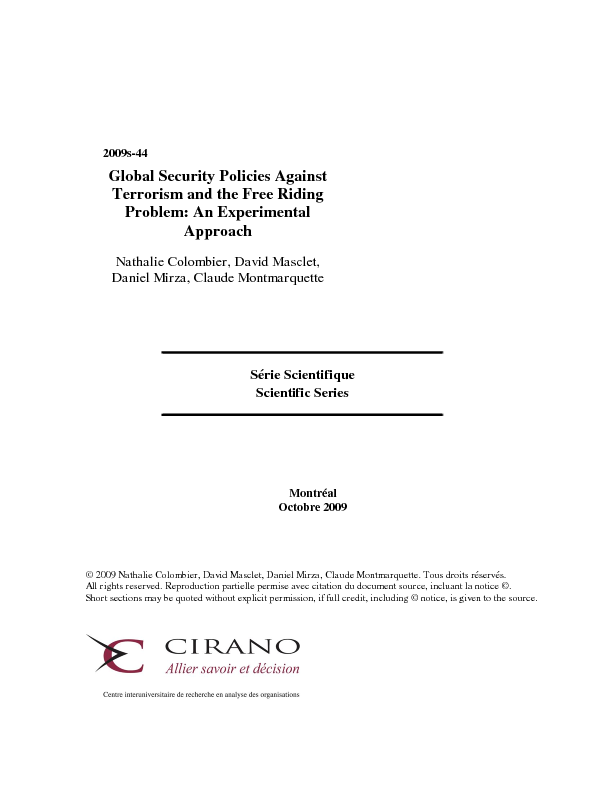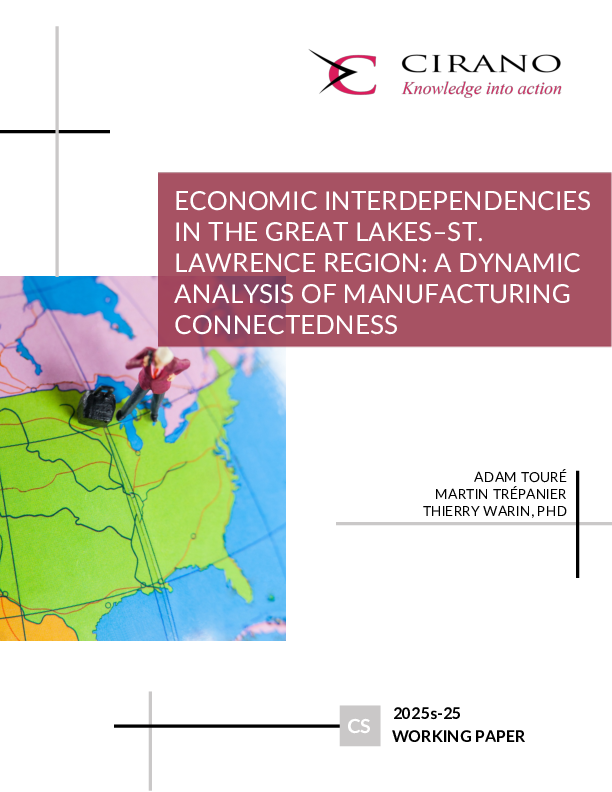Global Security Policies Against Terrorism and the Free Riding Problem: An Experimental Approach
The World Trade Center attack has shed light on the urgent need to implement preventing measures against terrorism and to enhance cooperation in the global security system for all countries. However, international coordination cannot be taken for granted. It is often ineffective and likely to fail for several reasons. Perhaps the more prominent reason to explain failure in coordination is that collective actions against terrorism may suffer from the well known free riding problem (Sandler and Enders, 2004). In this paper we experimentally investigate cooperation dilemma in counterterrorism policies by measuring to what extent international deterrence policy may suffer from free riding. In our game, contributions to the group account do not aim to increase the production of the public good but instead seek to decrease the probability that a stochastic event destroys the good. A country could choose to free ride by investing nothing in the international deterrence policy and instead invest all its resources in its own national protection or even choose to ignore totally terrorism by investing on alternative projects. We also look at the effects of institutions that allow sanctioning and rewarding of other countries to facilitate coordination on deterrence policy. We find that, in absence of institutional incentives and after controlling for risk aversion, most of countries defect by investing very weakly in collective actions against terrorism while largely investing to protect themselves. In contrast, the introduction of punishment/reward incentive systems improves significantly the contribution level to the collective security account.
[ - ]




